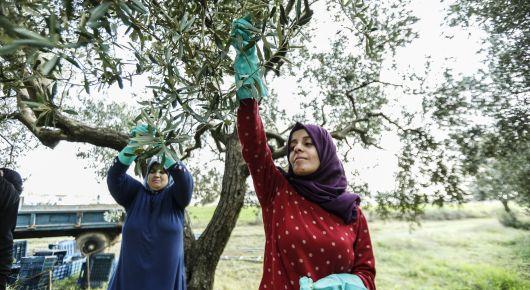FAO workshop addresses root causes of rural migration in Eurasia

In many countries across Europe and Central Asia, the ability of rural communities to retain and attract people is jolting. Although the root causes can vary, the problems of rural out-migration have become a trend affecting the development of those areas. To support policy coherence and country actions, particularly in the context of the Sustainable Development Goals, FAO has organized a regional workshop on rural migration in Europe and Central Asia on 13–14 November in Budapest.
Government, civil society, and international development partners’ representatives will review the drivers behind the evolving migration phenomenon, specifically the complexity of interlinkages among migration, agriculture, and development. At the same time, the workshop aims to promote country and regional initiatives on rural migration.
“The issues of migration and rural development are interconnected; and FAO supports the sustainable development of agriculture,” emphasized FAO Assistant Director-General and Regional Representative Vladimir Rakhmanin in his opening remarks. “It requires the availability of the labor force in rural areas to live and operate in a sustainable environment, as well as, sufficient investments which might be derived from migrants’ earnings.”
“We are interested in exchanging our experiences and replicating best practices from this diverse region of Europe and Central Asia,” Rakhmanin added.
Not only does the historic legacy create the growth of rural migration in Europe and Central Asia, but also other important dimensions, such as labour migration from Central Asia and the overall rural–urban trend in the region, as FAO Regional Programme Leader Raimund Jehle pointed out. In addition, these developments reflect the fundamental systemic challenges in the social, economic, and environmental spheres the region will likely face in the coming decades.
Some countries will have to deal with an aging (and even decreasing) population, as well as the challenges of youth employment, especially in rural areas. While accelerated structural changes and technological innovation can alter social structures and institutions, including those related to agriculture and food systems, an increasing level of interconnectedness within the region and greater exposure to larger Eurasian and global markets is expected.
Climate change is another factor directly impacting agriculture and, as a result, rural development, by significantly contributing to the challenges of salinization, soil erosion, water scarcity, increasingly frequent droughts, and extreme weather.
The workshop will examine the fundamental drivers of rural migration to give participants a solid understanding of the issues with the ultimate aim of enhancing sustainable food and agricultural production, rural development, and local livelihood in Europe and Central Asia in future.
13 November 2019, Budapest, Hungary
